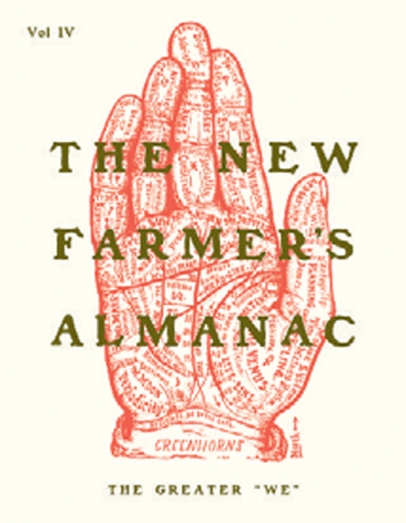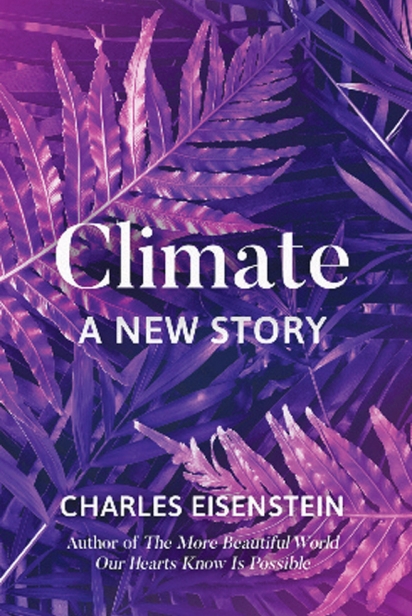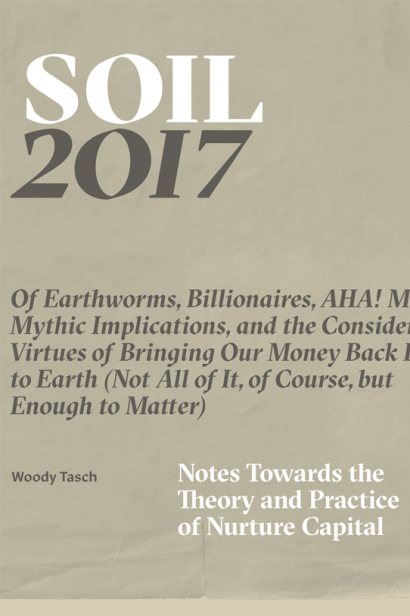New Books for Renewal
Environment, food systems, social justice, energy—all are interrelated parts of the increasing climate challenge facing us. Some say there are no silver bullets to turn things around; instead, it will take the most multidisciplinary effort of all time—everyone in their own area of effectiveness doing what they can to create regenerative human lifestyles. To that end, here are a few books that can help each of us do our part.
This winter, find a warm room and a book that matches your style, look up the websites, follow on social media—these are folks worth connecting to in matters of physical, spiritual and planetary wellness.
The New Farmers’ Almanac, Vol. IV, The Greater “We,” by the Greenhorns
(Chelsea Green Publishing, 2019; Greenhorns.org)
In the fourth volume of this beloved publication, dedicated to the Greater “We,” 90 contributing writers and artists explore the social, techno and ecological processes of diversification.
There are folk stories, reports on the racialized distribution of farmland, recipes for hickory nut milk and foraged teas. Toolboxes for seed-saving, indigenous land repatriation and creating liberated space. Advice from old-timers and insights from the new. Meditations on failure, loved crops and the wisdom of farm dogs. Here are stories about leaving and of returning home to work the land; essays on the geography of self-discovery; reflections on trauma, both climatic and personal; and some practical guidance for farmers. Add to this hundreds of unique images, from woodcuts to inked watersheds to fine and historic photographs.
Local bonus: Contributors include Brad Kik, Bellaire resident and cofounder of Crosshatch Center for Art and Ecology.
Climate: A New Story, by Charles Eisenstein
(North Atlantic Books, 2018; CharlesEisenstein.org)
Flipping the script on climate change, Eisenstein makes a case for a wholesale reimagining of the framing, tactics and goals we employ in our journey to heal from ecological destruction.
With research and insight, Charles Eisenstein details how the quantification of the natural world leads to a lack of integration and our “fight” mentality. With an entire chapter unpacking the climate change denier’s point of view, he advocates for expanding our exclusive focus on carbon emissions to see the broader picture beyond our short-sighted and incomplete approach. The rivers, forests and creatures of the natural and material worlds are sacred and valuable in their own right, not simply for carbon credits or preventing the extinction of one species versus another. After all, when you ask someone why they first became an environmentalist, they’re likely to point to the river they played in, the ocean they visited, the wild animals they observed or the trees they climbed when they were a kid. This refocusing away from impending catastrophe and our inevitable doom cultivates meaningful emotional and psychological connections and provides real, actionable steps to caring for the earth. Freeing ourselves from a war mentality and seeing the bigger picture of how everything from prison reform to saving the whales can contribute to our planetary ecological health, we resist reflexive postures of solution and blame and reach toward the deep place where commitment lives.
Soil: Notes Towards the Theory and Practice of Nurture Capital, by Woody Tasch, founder of Slow Money
It is about billions and trillions of dollars in the global economy, and billions and trillions of microbes in healthy, fertile soil. Nurture capital is a vision of finance that starts where investing and philanthropy leave off, giving us a new way to reconnect to one another and places where we live, all the way down to local food systems and the soil. Here’s a taste from Tasch’s intro:
“Note to The Reader I’m sad as hell and I’m not going to fake it anymore.
Our democracy is ebbing and carbon is flowing—into the atmosphere, that is, instead of back into the soil, where it belongs.
This is a call to farms. A call to all who plant, grow, harvest, eat, hug, argue, clink, put up, squirrel away, fritter away, lay away and otherwise regret that civility and community went that-a-way. A call to gather our wits—one farm at a time, one town at a time, one county at a time, one watershed at time, one refusal to argue about politics at a time, one sleeve rolled up at a time.”







